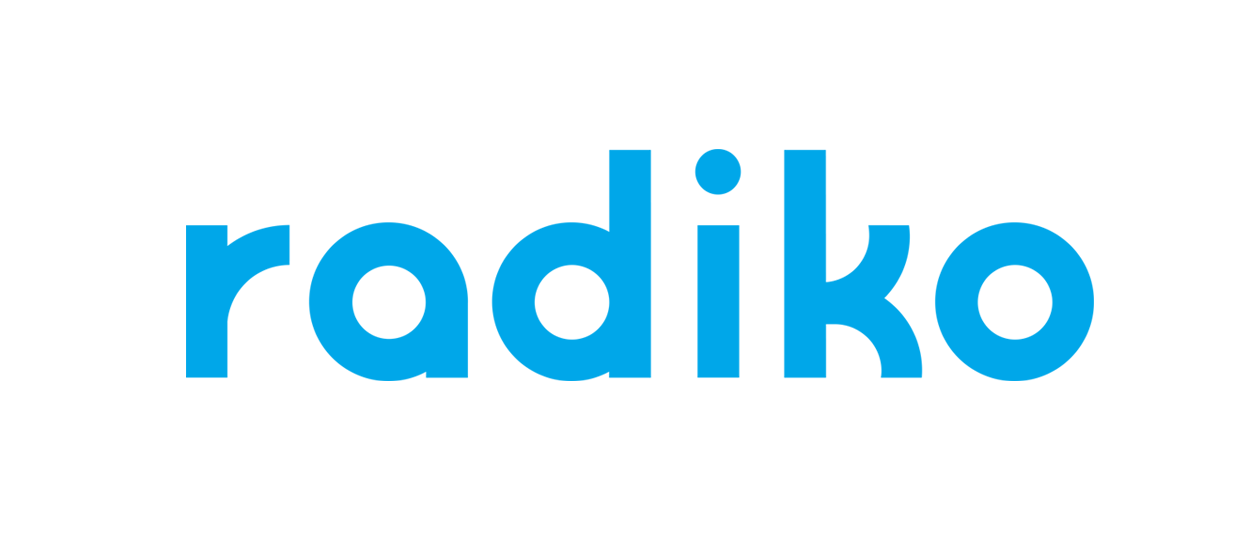radiko Leverages Authlete to Implement OIDC into Japan’s Largest Radio Streaming Platform’s Identity Infrastructure

“radiko” is one of the largest radio streaming platforms in Japan. The service enables users to listen to radio and podcasts over the Internet on their smartphones, computers, smart speakers, and other devices.
Radio stations participating in radiko include all 99 radio stations affiliated with the Japan Commercial Broadcasters Association and NHK (Radio 1, NHK-FM). In addition to the free service that allows users to listen to local radio programs without registering as a member, radiko also offers paid premium plans that enable users to enjoy radio programs throughout Japan and listen to programs broadcast within the past 30 days at any time, without any restrictions.
radiko, which launched its service in 2010, now has over 8.5 million monthly users and approximately 1 million paid subscribers. radiko Co., Ltd. (radiko), which operates the radiko platform, also conducts an advertising business that provides digital audio advertising that can target each user.
In renewing its app, radiko decided to revamp and strengthen its customer identity infrastructure to improve API security for mobile apps and to increase the number of subscribers. The company adopted Authlete to achieve this goal.
Background and Challenges
radiko began considering revamping its customer identity infrastructure back in 2020. At the time, the infrastructure was being used to manage users who were using paid services, but it was necessary to enhance the following functions to expand the business in the future.
Among the above, the company first decided to adopt OpenID Connect (OIDC) as the standard specification that its customer identity infrastructure is to comply with. Yoichi Nakamoto, Engineering Lead of the Technology Promotion Department at radiko, had this to say:
“The reason why we adopted OIDC is to improve the quality of security, as well as to reinforce collaboration between radiko and external services. By adopting a common standard, we considered that the collaboration of services can be promoted as a result of enabling the radiko ID to be used as the ID for other services.”

Yoichi NakamotoEngineering LeadTechnology Promotion Departmentradiko Co., Ltd.
It was also expected that the adoption of the standard specification would streamline the app development and contribute to the smooth renewal of the radiko app.
Preconditions
In building an OIDC-compliant ID infrastructure, it was necessary to satisfy several requirements.
The first requirement was compliance with the OIDC specification. The final version of the OIDC Core specification was finalized in 2014. However, additional extension specifications and their application methods (practices) have appeared one after another. Understanding the trends in the development of these specifications, selecting them, and continuing to apply them to the identity infrastructure as appropriate was not easy due to high maintenance costs.
Next, it was necessary to use radiko’s existing member data infrastructure. Ryo Tanigawa, Manager of the Platform Business Department at Media Platform Lab Co., Ltd., who is in charge of planning and providing radiko’s system, looked back on the situation as follows:
“The existing member data infrastructure not only served to authenticate users but also played an important role in subscription fee management, and it was difficult to migrate it to another infrastructure.”

Ryo TanigawaManagerPlatform Business DepartmentMedia Platform Lab Co., Ltd.
Development flexibility and scalability were also important. To have complete control over the user interface, such as the login screen, and to smoothly migrate from the existing member authentication infrastructure to a new OIDC-compliant authentication infrastructure, radiko wanted to adopt an architecture that can be internally developed and operated easily.
Why Authlete?
radiko decided that implementing OIDC from scratch was not realistic and considered using an external solution. The first two candidates were Identity as a Service (IDaaS), such as Auth0 or Amazon Cognito, and open source software (OSS), such as Keycloak or Hydra. Nevertheless, as a result of close examination, it became clear that neither of them could meet radiko’s expectations.
Particularly in terms of cost, while IDaaS is feature-rich and can reduce developer hours, the operational costs are high. In the case of OSS, although the license fee is free, the costs associated with understanding the OSS specifications, as well as the OIDC specifications, building the infrastructure, and continuing to operate it were expected to be a burden.
"Is there something in between IDaaS and OSS?” Tanigawa wondered. As a result of further searching for a solution, the project team came across Authlete. After a comprehensive evaluation, radiko decided to adopt Authlete. The following three points were the deciding factors in its decision:
Outcome and Future Outlook
The OIDC infrastructure development project leveraging Authlete started in November 2020. Design and development progressed simultaneously with prototyping, and implementation was completed the following January 2021. Testing and production environments were subsequently built, and the new infrastructure was released in April 2021. The project continued smoothly thereafter, with the free membership features being rolled out in the same year, social media login and in-app charging in 2022, and the app being renewed in 2023. As a result of these measures, the numbers of members and listeners have both increased. The number of users using paid services is also growing.
One direct effect of introducing Authlete is improved operational stability. “With the old infrastructure, we had issues with instability, such as users being automatically logged out when access was heavy, but introducing Authlete dramatically improved the situation,” said Tanigawa. Nakamoto added, “Because we can leave it to Authlete to comply with security specifications such as OIDC, we can now speed up the cycle of internally developing and providing new services and new functions.”
Furthermore, Authlete’s continuous functional enhancements are contributing to ongoing improvements and increased operational efficiency. In dealing with sudden increases in access, “Authlete’s on-demand scaling API, which allows checking authority information using JWT-format access tokens and adjusting the processing performance of the Authlete service depending on the load status, has been useful,” said Hokuto Shimogishi, Manager of the Streaming Business Department at NTT SmartConnect Corporation, who is in charge of operating radiko’s system.

Hokuto ShimogishiManagerStreaming Business DepartmentNTT SmartConnect Corporation
In addition, Tanigawa said, “When we requested the expansion of the functionality of the token introspection API, Authlete not only created the API but also implemented a client library in the Go language in just half a day. We were impressed.” He added that one of the benefits of adopting Authlete is the speed with which the company can provide features that reflect the requests of multiple clients, including radiko.

“We hope to continue deepening our relationships with users, primarily through the OIDC infrastructure, while also promoting identity federation with partner companies and increasing the added value of the overall service,” said Nakamoto. radiko has high hopes for the OIDC infrastructure to help further evolve its customer identity infrastructure.